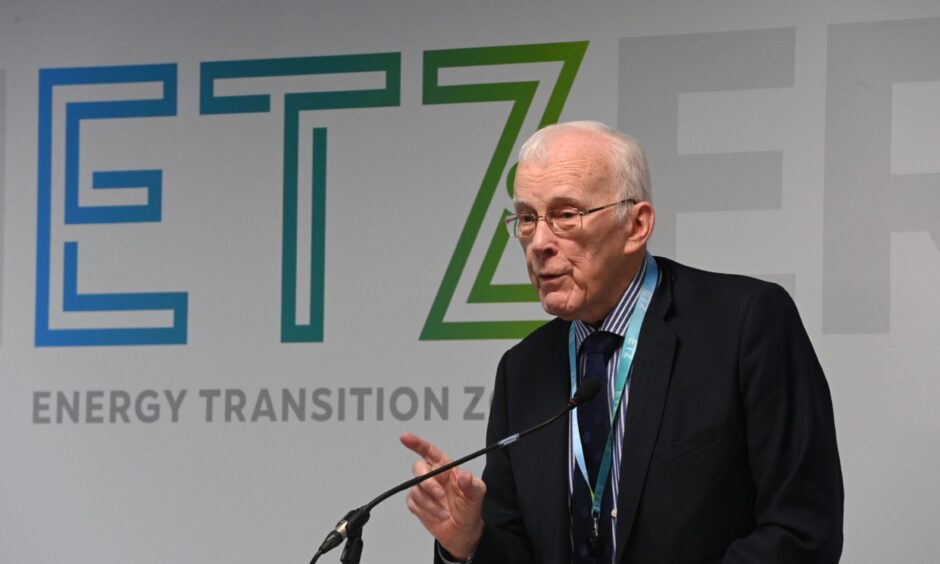Exclusive: How reforming energy windfall tax could unlock £41bn – and what that means for our region
Exclusive: How reforming energy windfall tax could unlock £41bn – and what that means for our region.
Energy leaders have made a direct appeal to Prime Minister Sir Keir Starmer, outlining a vision for jobs, investment, and a secure future in Aberdeen and beyond.
The oil and gas industry claims it can continue to pay a windfall tax while freeing up billions of pounds to invest in Aberdeen – but only if Prime Minister Keir Starmer is willing to reverse course.
The proposition seemed straightforward: reform the tax on energy income, and big businesses will invest a whopping £41 billion.
That’s a large number, but what does it signify in practice? Firstly, industry association Offshore Energies UK claims that the existing tax policy, the Energy Profits Levy, will kill the business in five years.
If Chancellor Rachel Reeves is willing to make the necessary changes, OEUK estimates that she will receive £12 billion in additional tax receipts to spend on schools, hospitals, and economic development by 2050.
Jobs protected offshore and on the high street
Aside from that, the £41 billion may mean a lot to a city like Aberdeen and the wider region, which is heavily reliant on electricity. This means dozens of new offshore projects to boost domestic energy security.
This, in turn, helps to support onshore jobs in manufacturing, supply chain, and fabrication yards. It continues to provide services such as catering and health and safety training.
The argument then follows that shops stay open in Aberdeen and commuter towns, taxis keep getting business and the city has a secure future – all while industry tries to invest in more renewable energy.
Critics of the windfall tax – brought in when prices were much higher – say it is responsible for risking the loss of 1,000 direct and indirect jobs every month.
Supply chain firms are already racking up losses – 100 at Beam in Westhill, 45 at Well-Safe Solutions and 250 at Harbour Energy, all recently.
David Whitehouse, the chief executive of OEUK, spelled out his position in letters to the prime minister and to the chancellor, both seen by the P&J.
“Today, we are witnessing an accelerated decline in domestic offshore oil and gas activity,” he writes.
“This is undermining the value of a strategic national asset and supply chain capabilities needed for a successful homegrown energy future.
Domestic oil and gas production has fallen by 40% in the last five years and is on course to halve again by 2030. This is an accelerated decline driven by policy.”
The intervention is all about building a case before the UK budget on November 26.
UK Budget showdown in November
That is when Ms Reeves will have to make major decisions about taxation and spending. It’s already a political issue, with opposition parties and the SNP government in Holyrood exerting pressure.
However, there are conflicting demands on Labour to ignore the lobbying voices of Aberdeen industry. Environmentalists argue that encouraging greater fossil fuel extraction sends the wrong signals.
They cite the Rosebank field dispute off the coast of Shetland, as well as requests to account for the carbon emissions associated with each drop of extracted oil.
On Wednesday, Green Party ex-leader Patrick Harvie remarked of the amended Rosebank plans: “It would be outrageous climate vandalism.”
So, what is the recommended tax alternative?
A permanent tax structure now – not in 2030
Mr Whitehouse wants a more permanent framework now, rather than in 2030, that will be predictable for businesses and respond to abnormally high pricing. “Over time this will deliver an additional £137 billion in value to the UK economy,” he estimates.
“More importantly, it will help to stem the loss of jobs and skills overseas, adding up to 23,000 jobs by 2030.” His involvement comes just one day after more than 100 supply firms wrote to the government, warning about the impact of ongoing windfall taxes on businesses from Shetland to Aberdeen.
The tax was a reoccurring theme at the SNP conference in Aberdeen last weekend.
Aberdeen South MP Stephen Flynn stated that no one in the city believes the industry can adopt Donald Trump’s mindset of “drill baby drill” for eternity. However, he stated that the country should defend overseas jobs today rather than accelerating their loss.
Harriet Cross, the Conservative MP for Gordon and Buchan, expressed alarm in Westminster on Tuesday. “Energy workers in north-east Scotland feel like they are on borrowed time,” she told reporters.
The Liberal Democrats have likewise taken a similar stand. Michael Turvey, a Lib Dem candidate in the north-east who co-wrote the new party policy, told the P&J that the windfall tax on oil and gas profits was supposed to be temporary, but it has dragged on and frequent changes have made the UK’s oil and gas fiscal regime one of the most unstable in the world.
“Investors are walking away.”
‘The same as the NHS budget in Scotland’
The Labour government wants to reflect what the existing system brings in for public spending.
For example, the oil and gas sector is predicted to provide approximately £16 billion in tax revenue by 2030. That is roughly the same as NHS Scotland’s annual funding.
A government spokeswoman stated, “We are taking a responsible approach that recognises the sector’s long-term role while exploring what happens after the Energy Profits Levy expires, so firms continue to invest and pay their fair share of tax.”
“The oil and gas sector will be with us for decades to come, as we deliver a fair and orderly transition in the North Sea to drive growth and secure tens of thousands of skilled jobs, with the biggest ever investment in offshore wind and three first of a kind carbon capture and storage clusters.”
Meanwhile, the UK Labour government established publicly owned investment company GB Energy to strengthen the industry and achieve a “just transition” – a word used to indicate a fair deal for employees.
On Saturday, the P&J highlighted the 17 local leaders who will collaborate with GB Energy to transform the city into a green powerhouse.
It occurred one day after we reported that Aberdeen-born billionaire Sir Ian Wood is donating £40 million to improve the business. The donation will be split evenly between ETZ Ltd and Opportunity North East to help speed the region’s transition to renewable energy and create more jobs.
This figure could treble in the next four years, with the SNP and Scottish Labour parties committing to match the investment if either party wins the Holyrood election in May.
Read more on Straightwinfortoday.com







Comments are closed, but trackbacks and pingbacks are open.